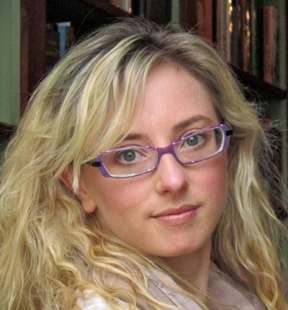To submit a question for the next featured agent, e-mail agentadvice@pw.org or write to Editor, Poets & Writers Magazine, 90 Broad Street, Suite 2100, New York, NY 10004. Questions accepted for publication may be edited for clarity and length.
 Areas of interest: Literary and upmarket commercial fiction; narrative nonfiction such as memoir, reportage, history, and biography; will consider big ideas, popular business and science, and specific topics such as storytelling or writing
Areas of interest: Literary and upmarket commercial fiction; narrative nonfiction such as memoir, reportage, history, and biography; will consider big ideas, popular business and science, and specific topics such as storytelling or writing
Representative clients: Allison Amend, Eugene Cross, Margaux Fragoso, Kira Henehan, Shelton Johnson, Lori Ostlund, Andrew Porter, Dave Reidy, Alex Taylor, Glenn Taylor
Looking for: Query letter with a description of the project and a bio, and an optional first five pages in the body of an e- mail
Preferred contact: E-mail terra@sgolombagency.com
Agency contact:
The Susan Golomb Literary Agency
540 President Street, Third Floor
Brooklyn, NY 11215
(212) 239-9500
How widely should a writer be published and how large a body of work should she accumulate before it is time to consider finding an agent?
Karin from West Sacramento, California
There’s no hard-and-fast rule. You don’t even need an agent to get your novel published. Independent and university presses publish amazing writers, and some people self-publish. You need an agent for countless other reasons, including protecting your intellectual property. Reputable journals or independent presses that get review and award attention can help build a consensus about your work before you go to an agent. But there are also writers who skip directly to getting an agent for their novel, selling it to a big house, without building a body of work beforehand. Frequently this work attracts an agent because it has clear commercial appeal. Regardless of your individual path, publishing professionals notice good writing and want to be a part of bringing it to the rest of the world. Approach an agent when you are confident your work reflects what you want it to, but wait until you have a complete draft or complete proposal.
Is it typical to give a publisher rights for all media? Is there a standard practice regarding adaptation rights into other media and/or translation rights when initially signing a contract?
Beth from Denver
I’ve seen contracts that grant the publisher all rights to the book, including all media. Most frequently such contracts are used when there is no agent involved. Sometimes the author signs one because she would rather have someone other than herself responsible for the rights, or because she lacks firsthand knowledge of industry standards. Independent and university presses, which are wonderful for many reasons, are most often responsible for contracts such as these because they publish unagented work and because their rights income is on a smaller scale, so they like to have as many rights as they can. However, at small presses there is not always someone specifically assigned to pursue selling foreign, audio, first-serial, and especially media-subsidiary rights. There are now also other rights to consider because of evolving technology, like e-book rights and enhanced e-book rights. Publishing is undergoing many changes, so it’s a crucial time for authors to protect themselves from contracts that assign rights to a publisher not equipped to exploit them.
At what point is an author justified in ending his relationship with his agent?
Adam from Chicago
Writers leave their agents, and vice versa, for any number of reasons, so the point at which to do so varies. If you do decide it’s time to end the relationship, it’s wise to do it gracefully. If that agent has sold any of your work, chances are you’ll have ongoing contact regarding that project or projects. It’s good to apply the law of diminishing returns. Also, ask yourself: Do you have serious misgivings about the quality of service you’re receiving? Do you believe the agent’s goals are aligned with yours? At the same time, remind yourself that no one is perfect—the grass is not always greener—and that presumably you and your agent began the relationship by working toward a common goal, and to do so again could simply require a discussion and renewal of vows, so to speak.








